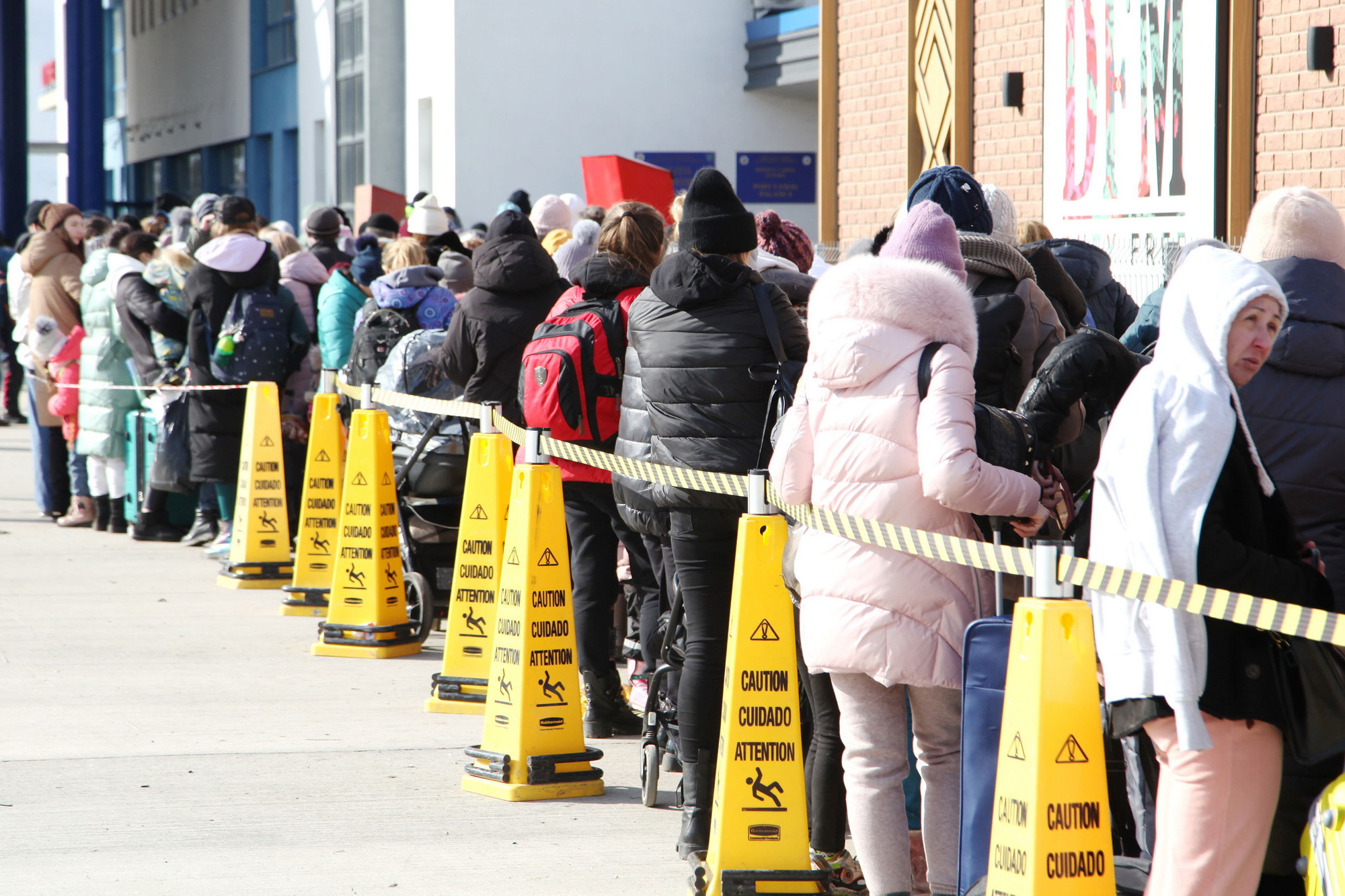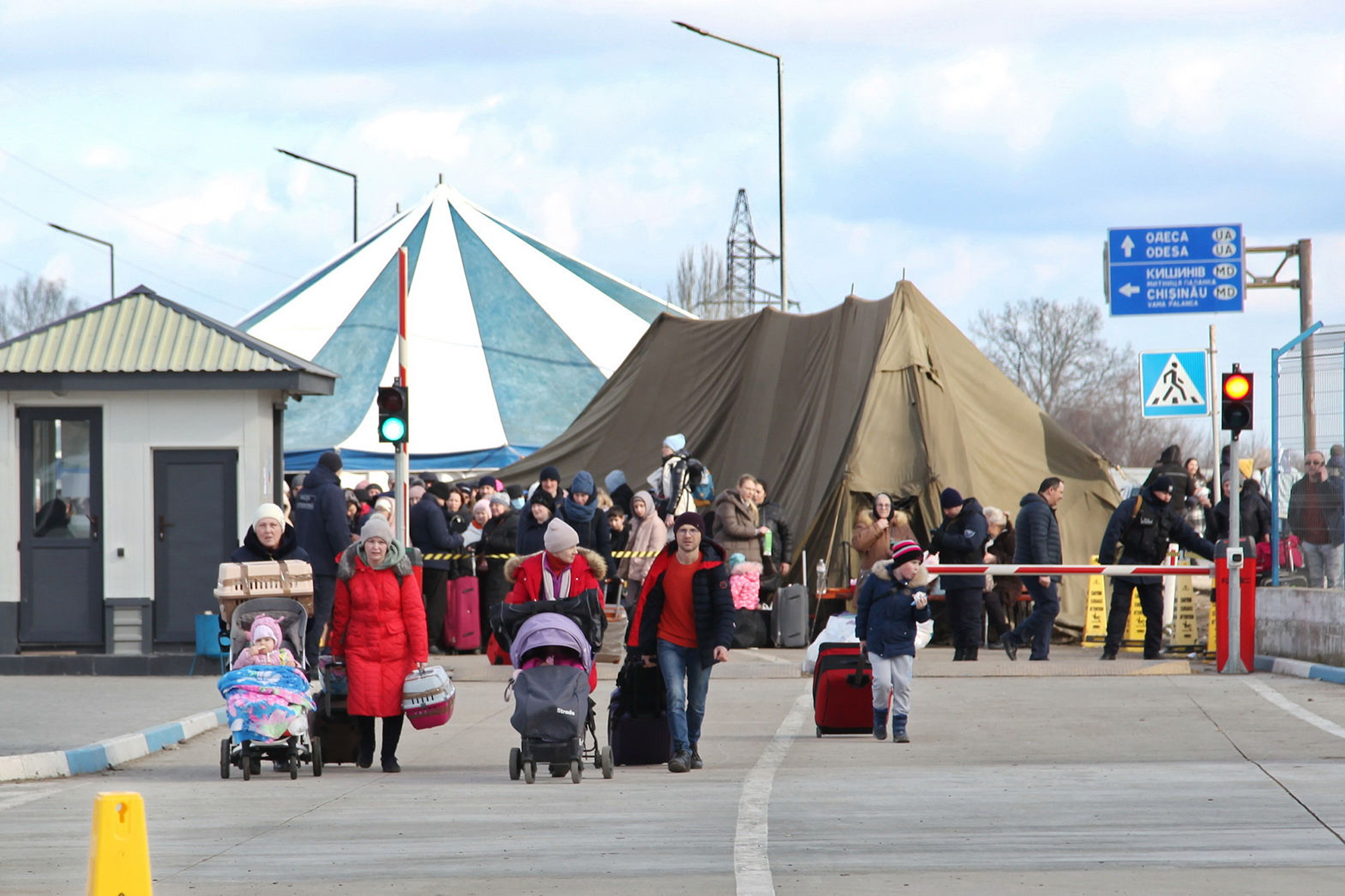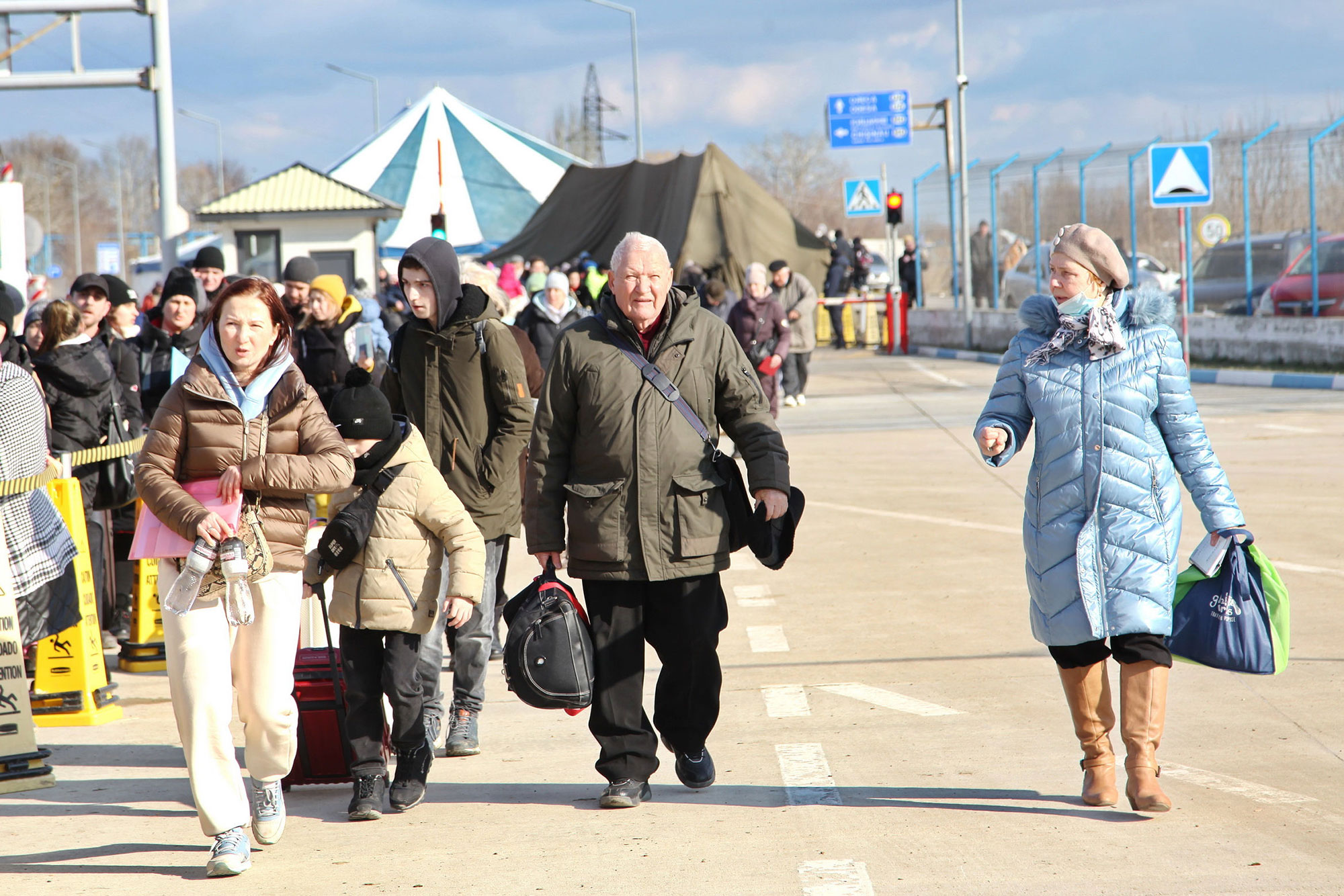Chisinau, Moldova, 5 Mar 2022 – One day they were calmly going about their business. The next, their worlds were turned upside down.
Over 1.45 million people, from nearly 140 countries, have fled Ukraine, as military operations made refugees out of lawyers and labourers, students and secretaries, teachers and technicians.
Some arriving in the Moldovan capital look shocked and dishevelled after days on the road; others crossed the border less than two hours away in SUVs with their pets and accessories.
The adrenaline of flight is still in their blood, mingling with a growing realization that reality today means waking in a different land on the floor of a refugee centre. The past is back in Ukraine, with their houses and possessions. Their memories are packed into grab bags, plastic sacks and suitcases.

New arrivals from Ukraine wait outside an exhibition centre turned refugee centre in Moldova’s capital Chisinau. Photo: IOM/Joe Lowry
Chisinau authorities, UN agencies, non-governmental organizations and private charities are rushing aid to Moldexpo, an exhibition centre. For the past two years it was a COVID-19 treatment centre, and the isolation areas remain. Now it is home to over 1,000 people, nearly double its intended capacity.
Outside, snow is falling, a not-so-subtle reminder that people have fled their homes at the toughest time of year. It is warm inside and young volunteers serve hot drinks and snacks.
Here people can sleep after days of fear and flight. Children run round playing, as parents quietly share news with one another, considering how just a week or so ago, they had a sense of place and purpose.
Aygun left the Ukrainian port city of Odessa when the military operations began.

Lars Lonnback, IOM’s Chief of Mission in Moldova (far left) was part of the delegation meeting EU High Representative Josip Borrell at a refugee centre in the Moldovan capital Chisinau. Photo: IOM/Joe Lowry
“On the 24th of February, in the morning, we heard that terrible sound of the bombing. We understood that we have to leave Odessa as soon as possible, but that was not so easy, since I have three children and no car,” she says.
Originally from Azerbaijan, she has an eight-year-old boy and 11- and 12-year-old girls; her Ukrainian husband chose to remain in Odessa.
“We managed to take just the most important things and flee. We arrived here by bus; it was an organized one for refugees. All we need now is some food, time to rest and we will carry on to Baku.”
Refugees from Ukraine crossing into Moldova at Palanca in the south of the country. The majority are women, children and the elderly, as Ukrainian men aged 18 to 60 have to remain. Photo: IOM/Nikolae Grosu
Chisinau Mayor Ion Ceban tells IOM Moldova Chief of Mission Lars Lonnback that many more public buildings are being readied as more people arrive; more than 194,000 Ukrainians and third country nationals have come to this small country on the edge of Europe, many passing through into the European Union.
Aygun and her children are travelling with her relative, Ayan who has two children, a 12-year-old girl and a three-month-old baby.
She knew she had to leave, driven by the strongest elemental force, a mother’s love for her children.
“I had to save my children,” she says. “My husband remained in Odessa as well and I hope that everything will end soon and we will be together again.”
IOM is assessing needs, distributing essential relief supplies and ramping up fundraising for what is being described as the greatest humanitarian emergency since World War Two.
Story by Joe Lowry and Ana Gnip.







